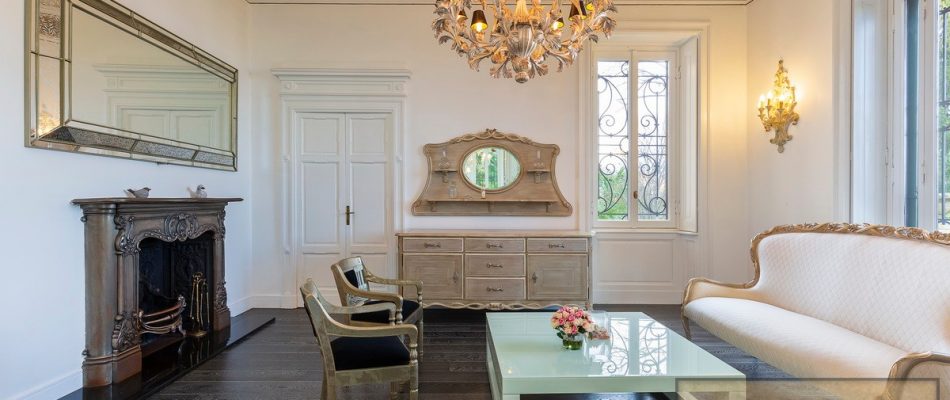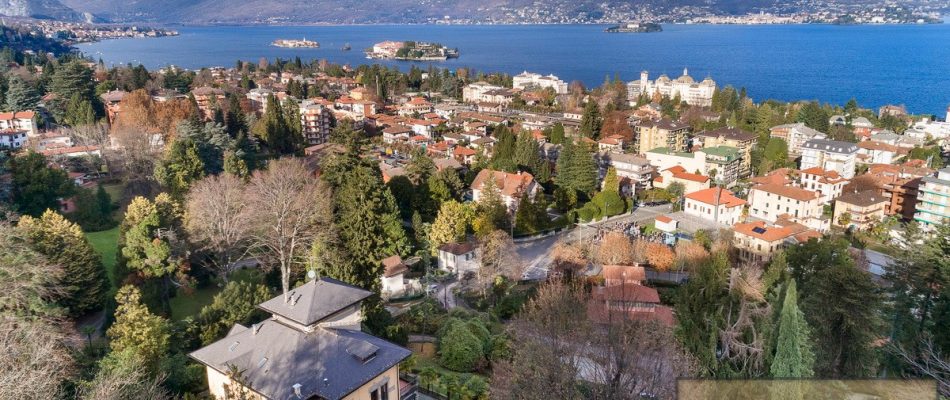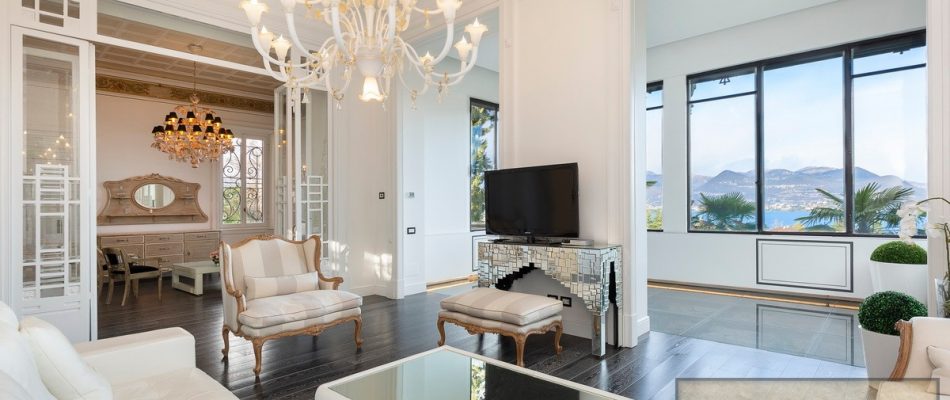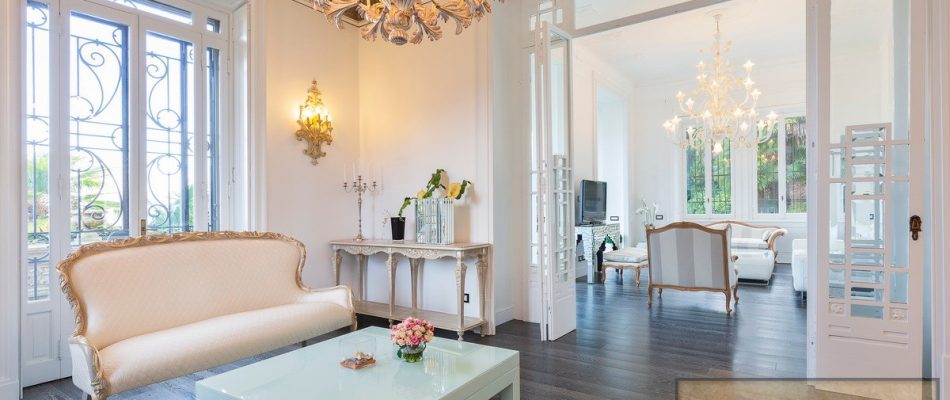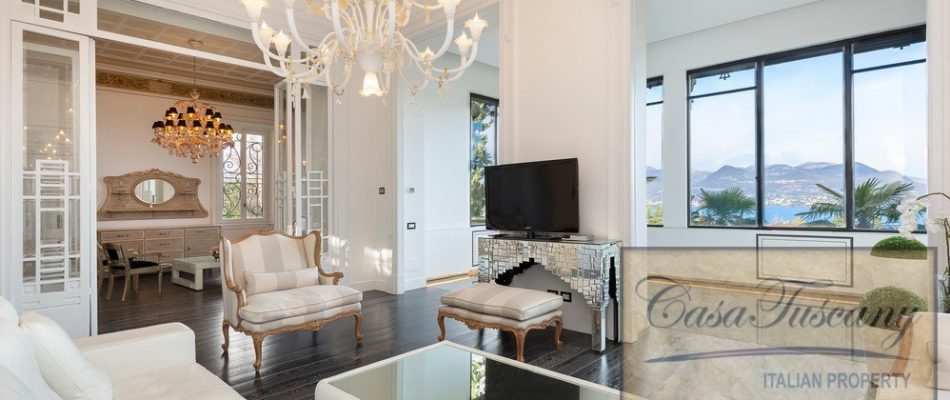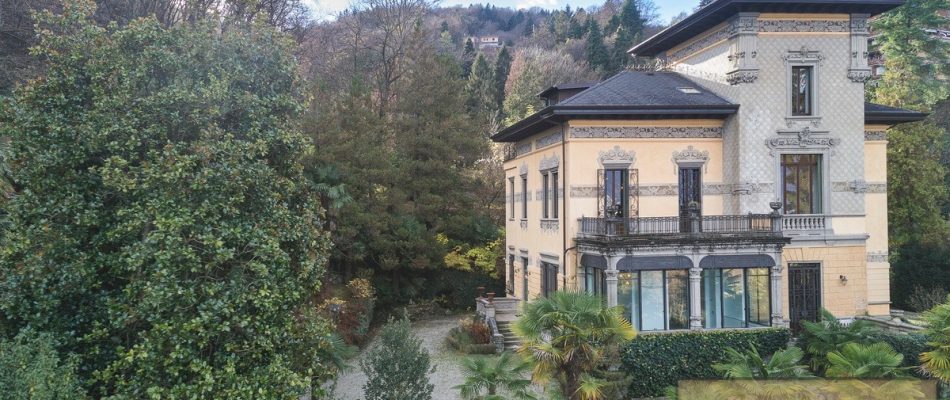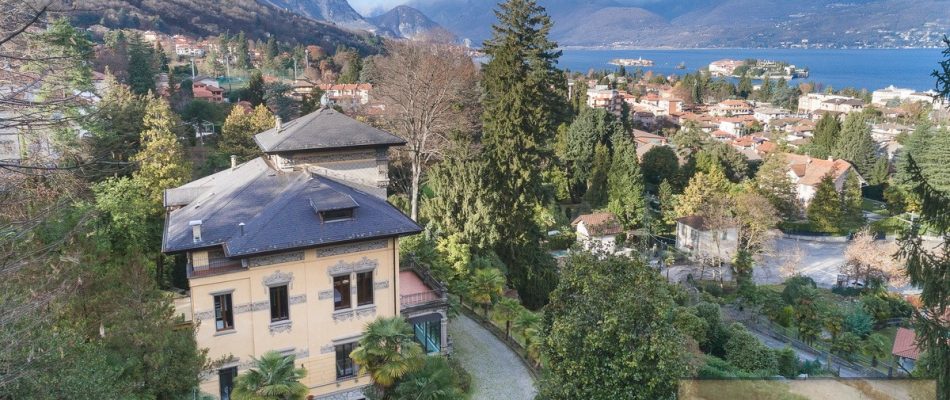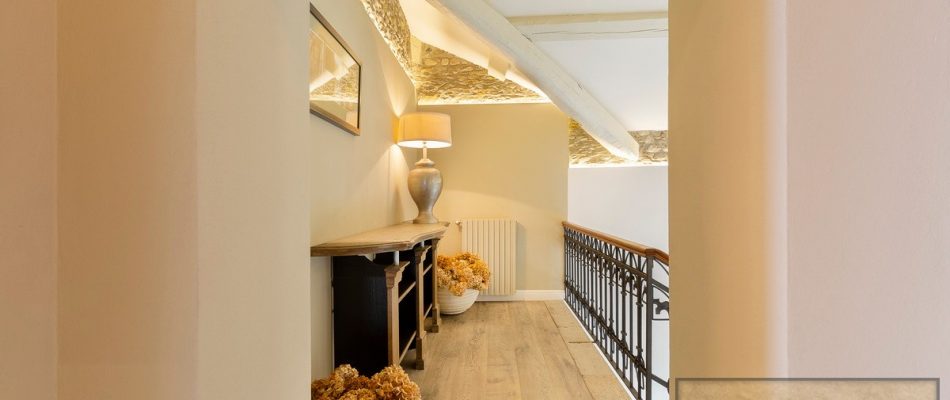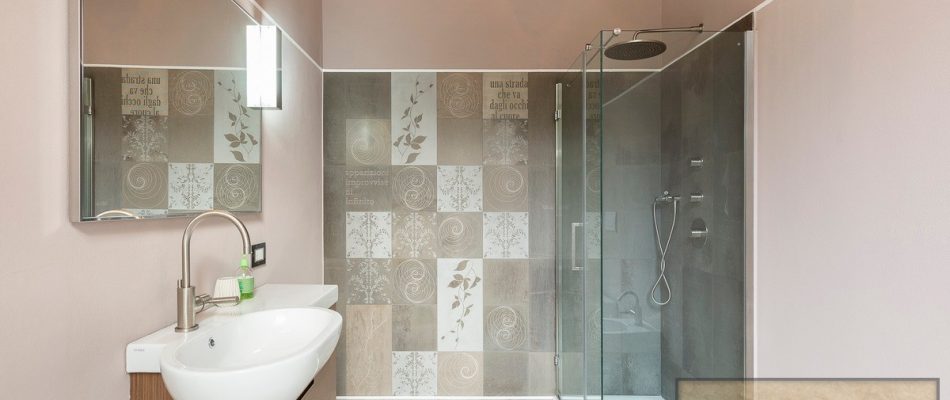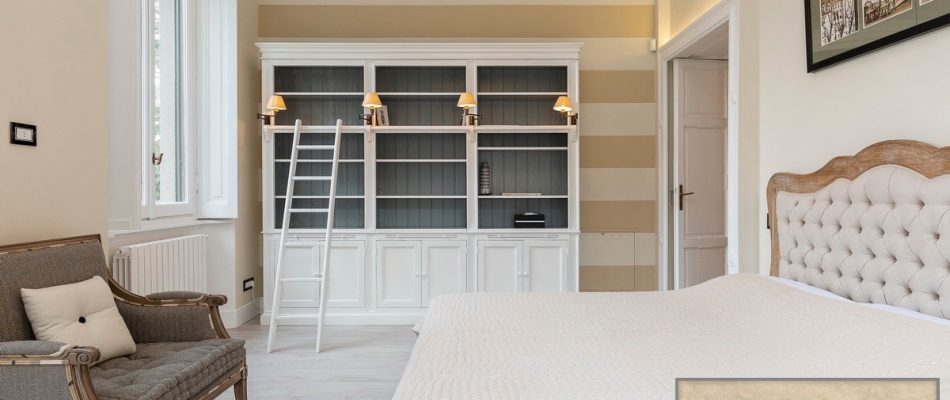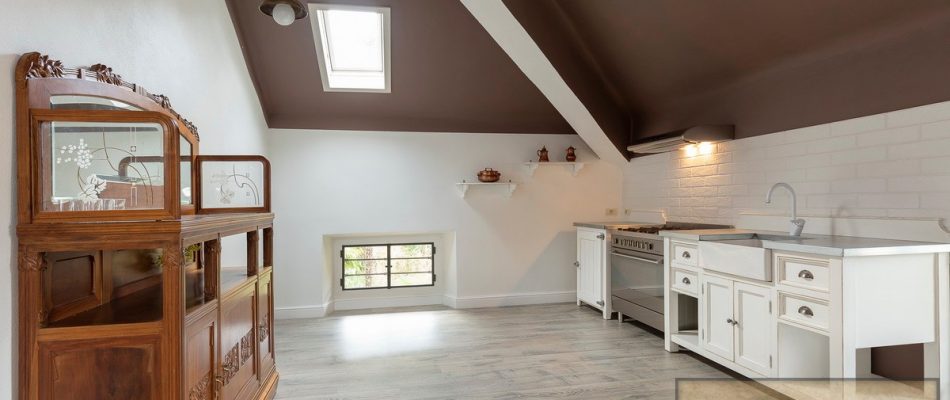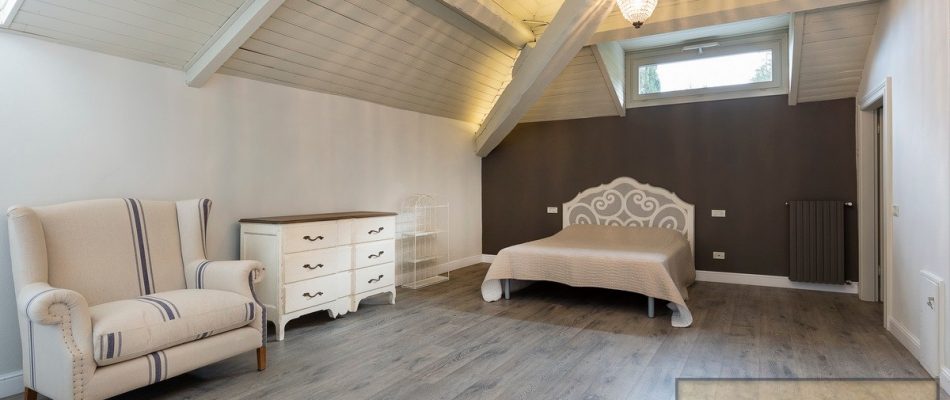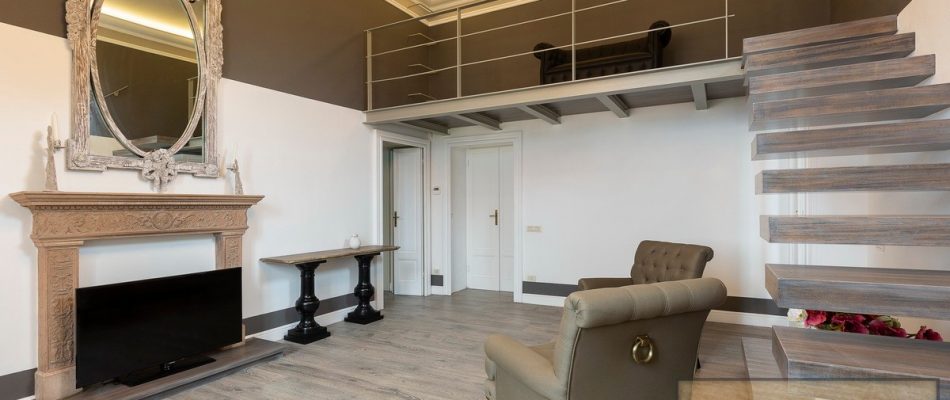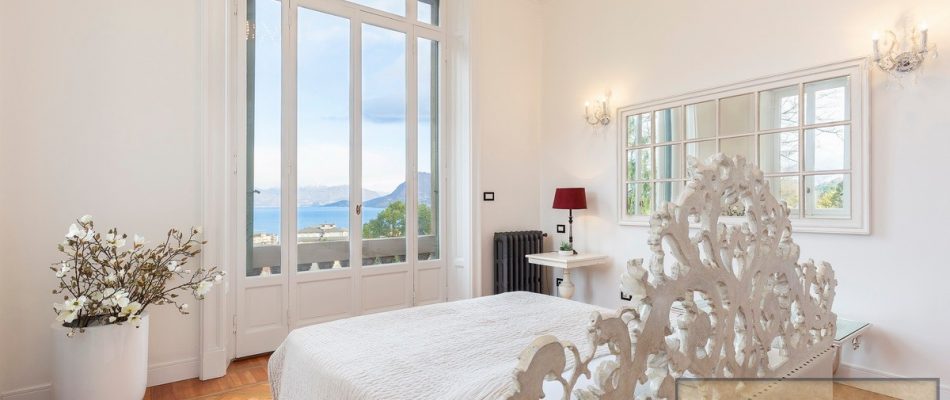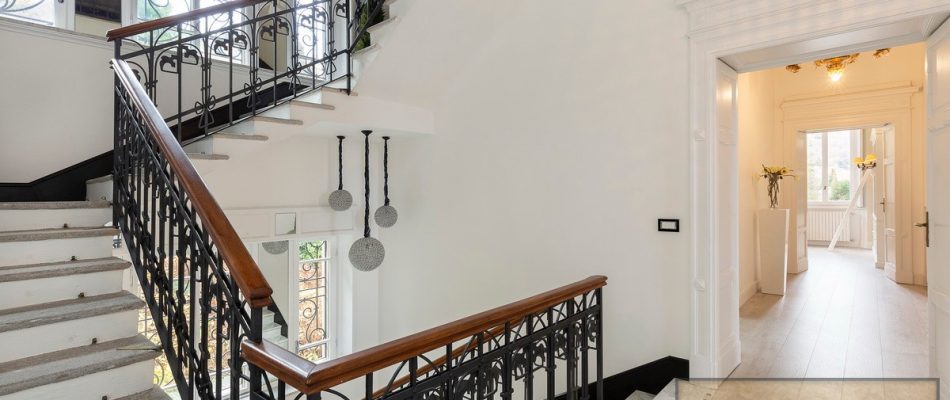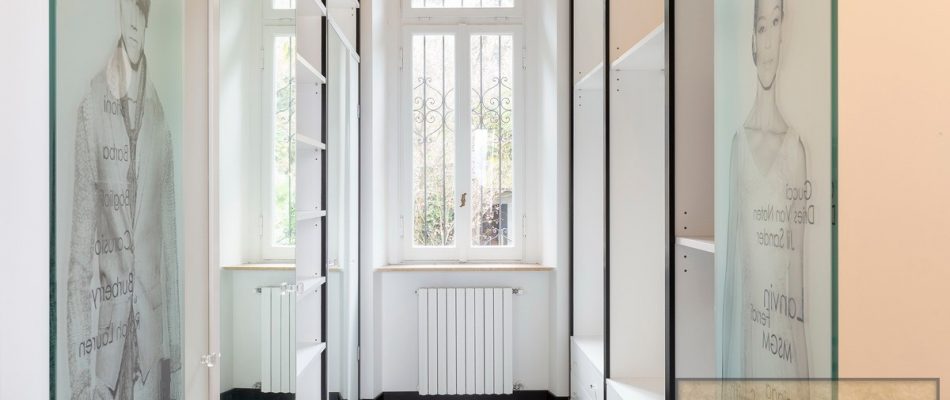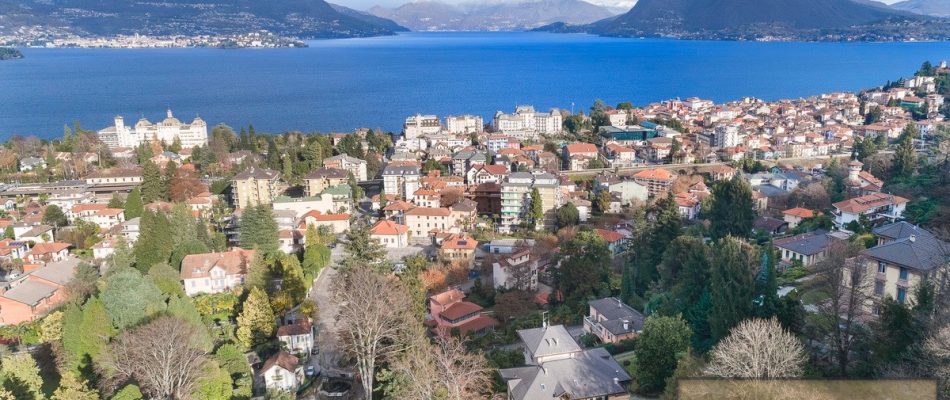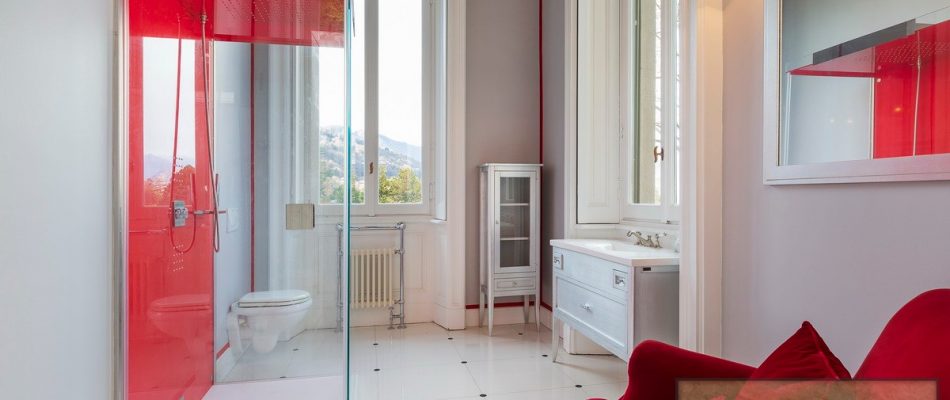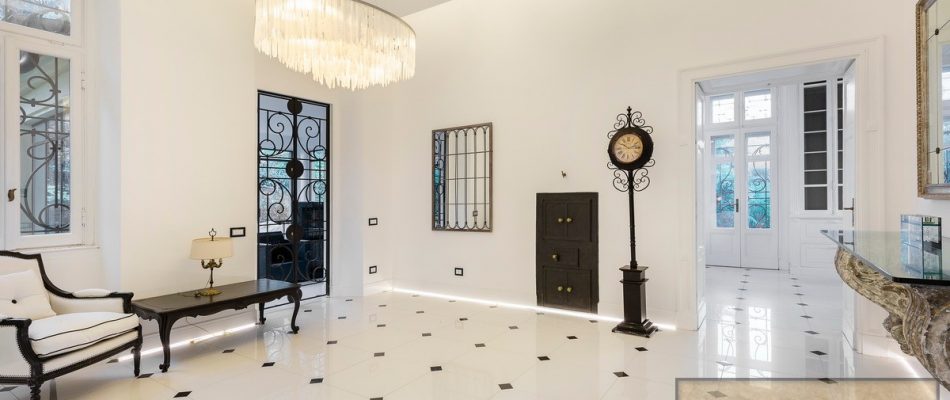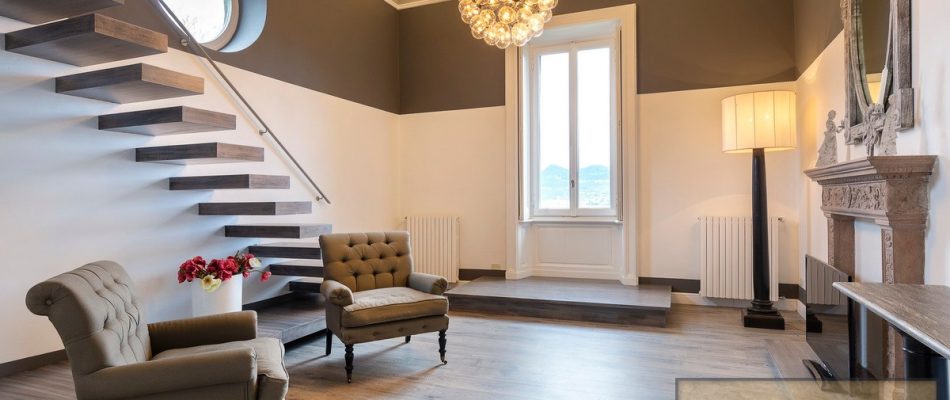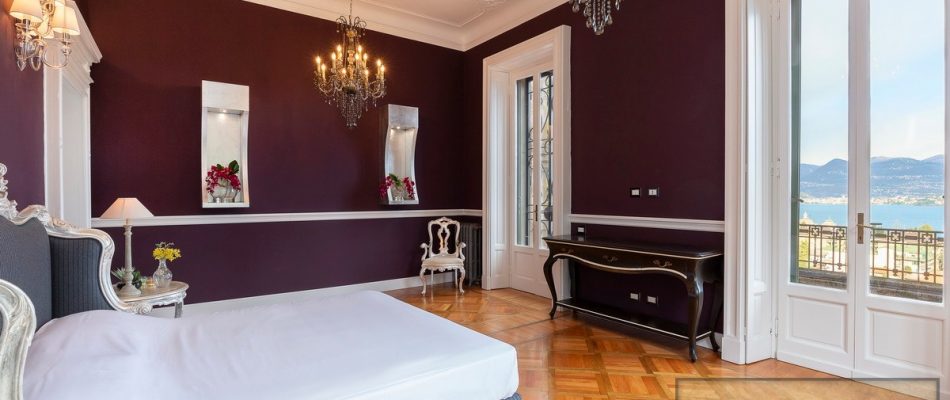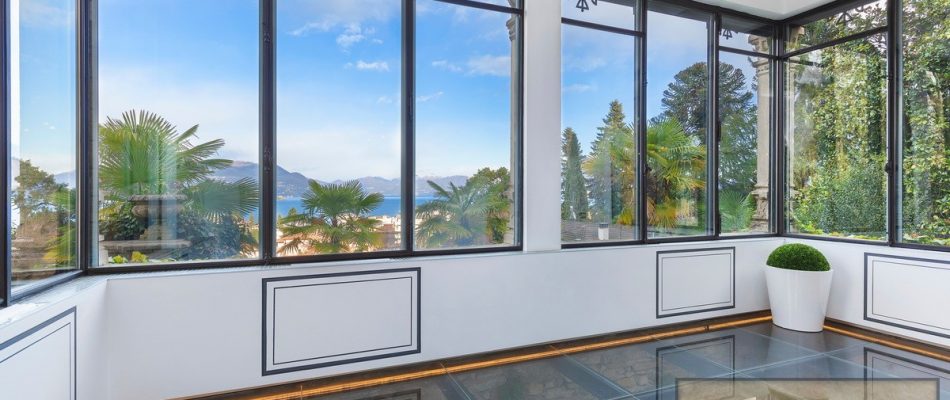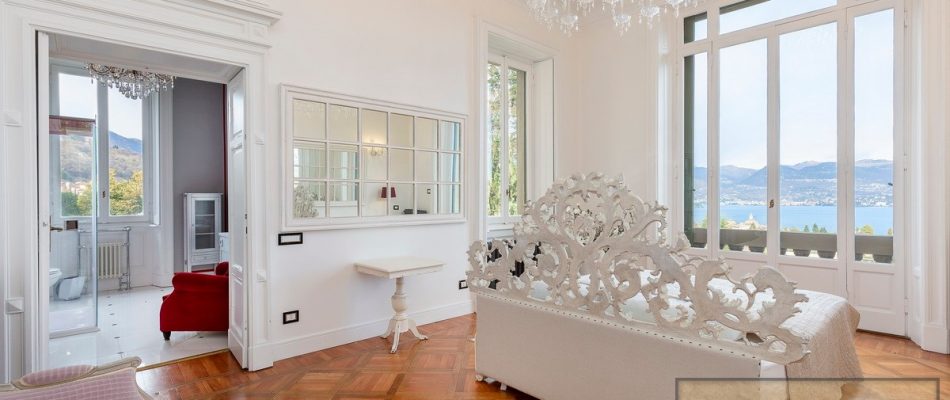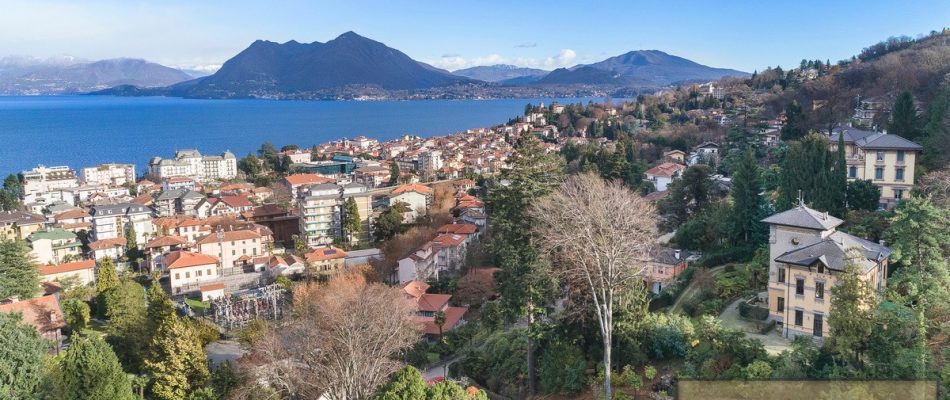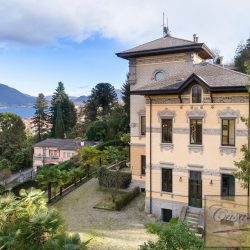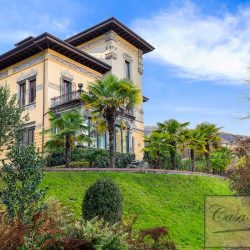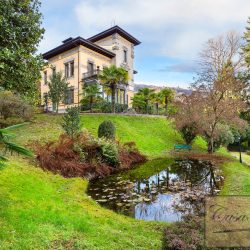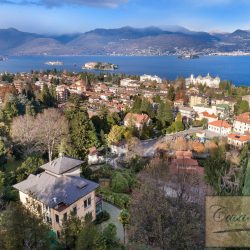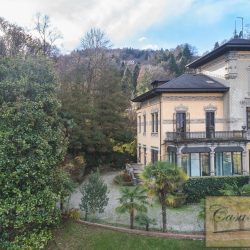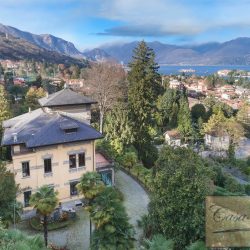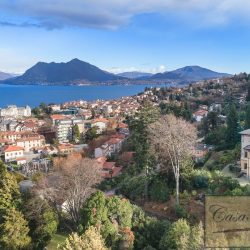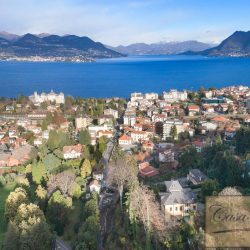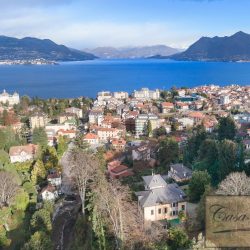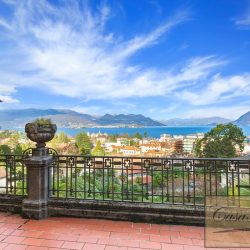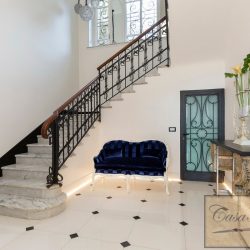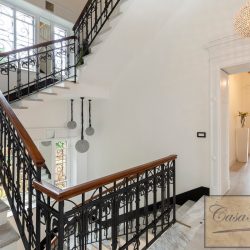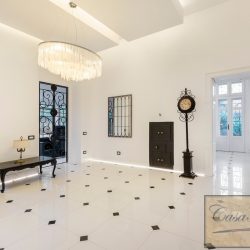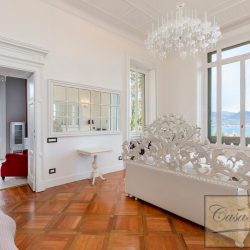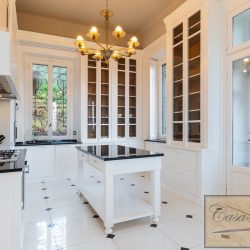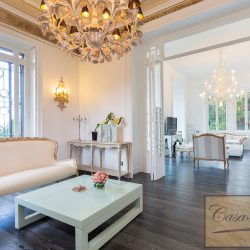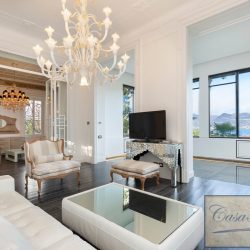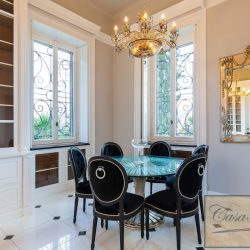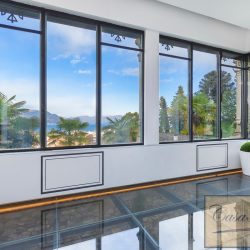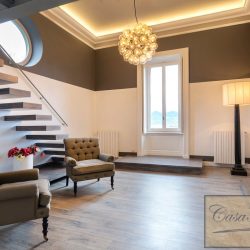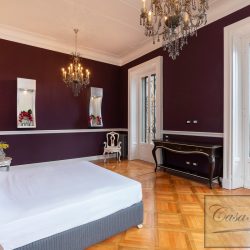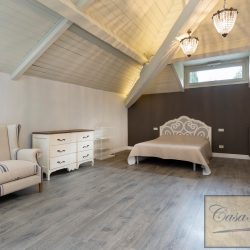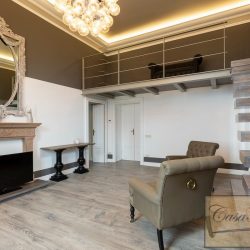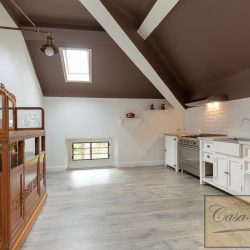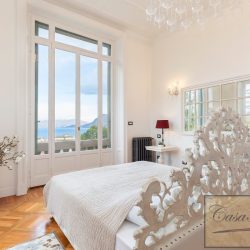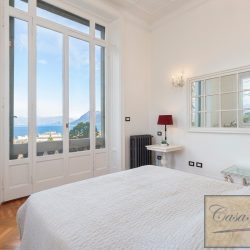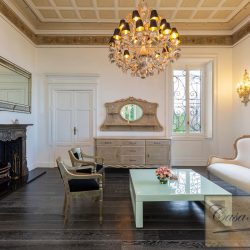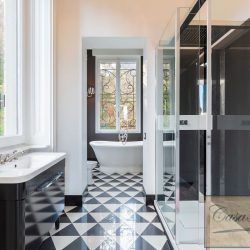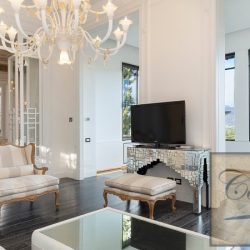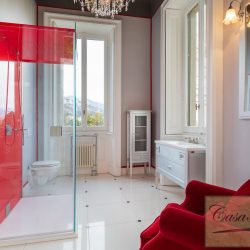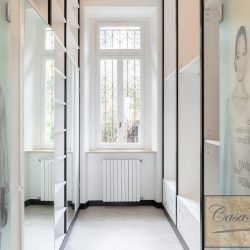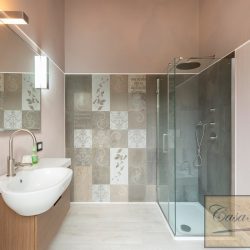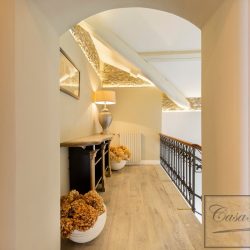ITALY, PIEDMONT, VERBANO-CUSIO-OSSOLA, STRESA
Liberty Villa on Lake Maggiore
Liberty Villa. Situated in a hilly location, just 10 minutes’ walk from the centre of Stresa, surrounded with woods and gardens, this Art Nouveau villa on Lake Maggiore is a luxury residence dating from the late 1800s, with a magnificent panoramic view of the lake with which it shares its name. Stresa is situated on the western shore, overlooking the picturesque Borromean Islands. Its attractive location, combined with the mild climate, has made it a well-loved tourist destination since the mid-1800s.
The property comprises a main villa of 749 sqm on 4 storeys, and a guesthouse of 30 sqm, surrounded by a private garden measuring around 5,500 sqm.
The villa is in perfect condition. Recently restored under the consultation of a famous designer, they have kept many original elements and finishings and have maintained the original period facade, blending them with contemporary elements to create a perfect combination. The outside is decorated with art nouveau motifs, while the inside has pretty stuccoes on the high ceilings, marble staircases, mosaic or wood floors and original fixtures.
Main Villa:
794 sqm on 4 storeys.
The sumptuous ground floor, used entirely as the living area, features a spectacular double sitting room, with fireplace, which is connected to a stunning veranda overlooking Stresa, the lake and the surrounding hills. Next door there is a large kitchen with dining area, while to the back, in addition to the large entrance hall, there is an area which houses the stairs to the upper floors, a store cupboard, an office and a guest bathroom for the living area.
The sleeping quarters are on the first floor, with the master bedroom with bathroom and access to a panoramic terrace with view of Lake Maggiore, and two further bedrooms with en-suite bathrooms.
The second floor is a mezzanine, fully finished with a minimum height of 2 metres and a maximum of 3.7 metres, and divided into four rooms (two of which currently have beds) and two bathrooms (one with a little terrace).
The villa also has a basement floor, which is accessible both from inside and via a separate outdoor entrance, which is currently used as a cellar and which has a utility room.
Annex:
30 sqm on one storey.
The outbuilding, which is used as a guesthouse, measures around 30 sqm and features a studio apartment with bathroom.
External Areas:
The property includes a lush garden measuring around 5,500 sq.m, with trees and palms, fountains and a small pond.
In the main villa there is also a beautiful terrace with a panoramic view, built on top of the ground floor veranda.
Distances:
Stresa 0.8 Km, Novara 62 Km, Varese 66 Km, Milan 84 Km, Ligurian sea 188 Km, Lake Maggiore 0.8 Km, Milan Malpensa Airport 50 Km, Airport Milano Linate 106 Km, Motorway 6 Km.
View all our properties on our website casatuscany.com.
